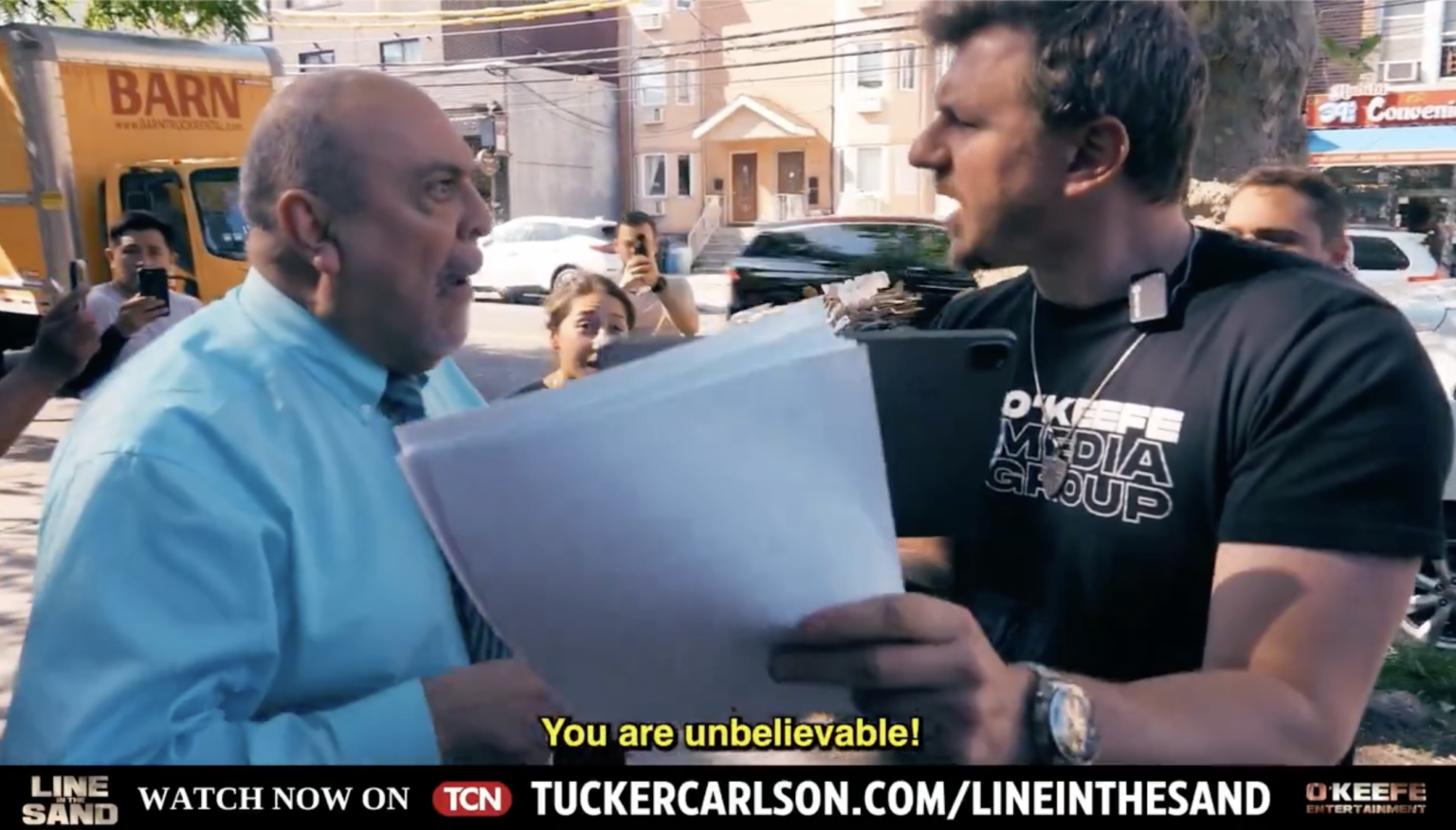In his latest undercover investigation titled “Line in the Sand,” James O’Keefe has intensified the debate surrounding the migrant industrial complex in the United States. Premiered on October 10th on the Tucker Carlson Network, O’Keefe’s exposé sheds light on the troubling and often hidden realities at the U.S. southern border, challenging narratives commonly expressed in mainstream media and among political elites. Through a series of revelations, O’Keefe seeks to illuminate the chaotic dynamics and illegal operations that he argues perpetuate a flawed immigration system.
Among the highlights of O’Keefe’s investigation is a confrontation with Pedro Rodriguez, the Executive Director of La Jornada, a Queens, NY-based organization. This exchange was marked by intense accusations and emotional reactions from Rodriguez, who was confronted about allegedly providing illegal immigrants with false residential addresses in exchange for payment. The encounter revealed Rodriguez’s inability to provide satisfactory justifications for his actions and instead resorted to personal attacks against O’Keefe. This exchange serves as a microcosm of the larger conflicts surrounding immigration and the myriad players profiting from the complexities of the current U.S. border situation.
O’Keefe’s report also emphasizes the systemic failures that allow individuals and organizations to exploit the loopholes within immigration laws. Rodriguez’s assertion that “there is no law” preventing the chronicling of fake addresses underscores a disconcerting aspect of the immigration debate: the ambiguity in legal frameworks that can facilitate unethical practices. O’Keefe has highlighted this troubling lack of accountability as a significant factor allowing the migrant industrial complex to thrive. By shedding light on these operations, O’Keefe aims to galvanize public attention around a problem he views as both urgent and damaging to the core values of the nation.
The film features testimonies from whistleblowers within the enforcement community, including Border Patrol Agent Zachary Apotheker, who experienced severe repercussions after daring to speak out against the corruption he witnessed. Apotheker’s swift punishment—a revocation of his government-issued firearm—illustrates the risks faced by individuals challenging the status quo in government agencies. He noted the irony of being disarmed while criminals, specifically “illegal alien convicted murderers and rapists,” are allowed to roam free. His comments ignite a critical dialogue about the priorities of U.S. border enforcement and the apparent protection of operatives in the system.
The plight of whistleblower Apotheker highlights his commitment to the principles he swore to uphold, as he wrestles with the consequences of exposing troubling practices within his department. His assertion that “when you’re truly over the target, you become the target” speaks to the dangers faced by those who dare to challenge institutional narratives and expose the uncomfortable truths of U.S. immigration policies. His story, coupled with the video documented by O’Keefe, serves to bring urgency and gravitas to the broader conversation about immigration reform and the role of accountability in government positions.
Ultimately, O’Keefe’s investigation, “Line in the Sand,” aims to provoke thought and discussion on the migrant industrial complex, encouraging audiences to reevaluate prevailing narratives and consider the implications of a system rife with exploitation and abuse. By shining a light on the intertwined issues of illegal immigration, border security, and institutional pain points, O’Keefe taps into a deeply polarizing topic that continues to evolve and challenge the fabric of American immigration policy. The emerging discourse around this exposé will likely inspire further investigation and debate as the conversation evolves in response to these revelations.

